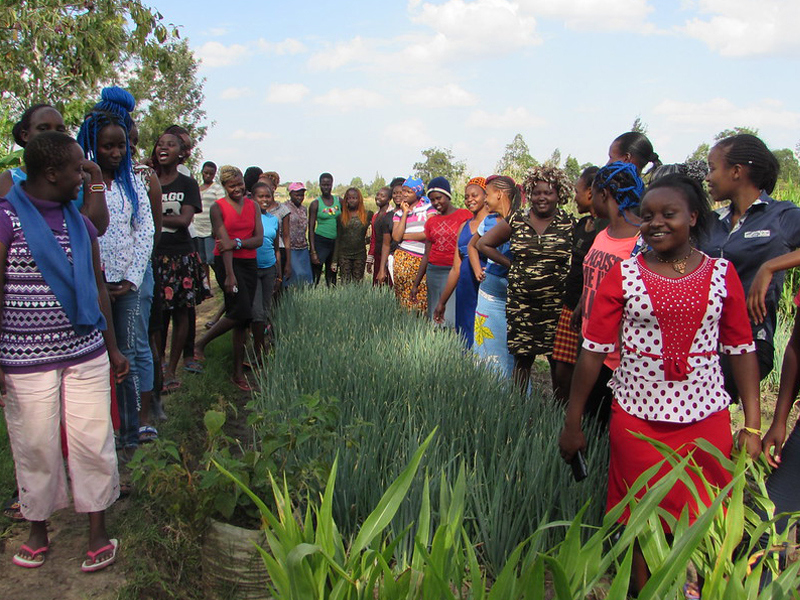
This project with BGR partner the Grow Biointensive Agriculture Centre of Kenya (G-BIACK) has been created to address food insecurity and malnutrition and to raise the income of smallholder farmers in Matungulu, Machakos County, where agriculture is impacted by low productivity, soil degradation, and environmental destruction.
Building on previous BGR projects, this year’s initiative is continuing to implement approaches that equip small-scale farmers with essential skills and knowledge through workshops, practical demonstrations, and ongoing support. This year’s trainings focus on short-duration cash and food crops, which ensure a steady income flow for families while also improving household food availability. Engaging women farmers in short-duration cash crop cultivation can reduce overdependence on maize as the primary income source and encourage the cultivation of high-value crops such as sorghum, pigeon peas, soybeans, tomatoes, and pawpaw, helping families address essential needs such as school fees, additional food supplies, and other household expenses and supporting them in building economic resilience and sustainability. The project is directly training 500 farmers, including 380 women; additionally, G-BIACK asks that each project participant in turn train at least four neighbors, expanding the project’s reach to an additional 2,000 farm families.

This project with BGR partner the Grow Biointensive Agriculture Centre of Kenya (G-BIACK) has been created to address food insecurity and malnutrition and to raise the income of smallholder farmers in Matungulu, Machakos County, where agriculture is impacted by low productivity, soil degradation, and environmental destruction.
Building on previous BGR projects, this year’s initiative is continuing to implement approaches that equip small-scale farmers with essential skills and knowledge through workshops, practical demonstrations, and ongoing support. This year’s trainings focus on short-duration cash and food crops, which ensure a steady income flow for families while also improving household food availability. Engaging women farmers in short-duration cash crop cultivation can reduce overdependence on maize as the primary income source and encourage the cultivation of high-value crops such as sorghum, pigeon peas, soybeans, tomatoes, and pawpaw, helping families address essential needs such as school fees, additional food supplies, and other household expenses and supporting them in building economic resilience and sustainability. The project is directly training 500 farmers, including 380 women; additionally, G-BIACK asks that each project participant in turn train at least four neighbors, expanding the project’s reach to an additional 2,000 farm families.




